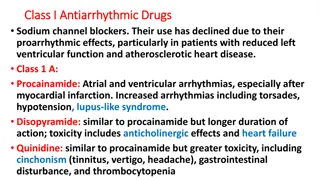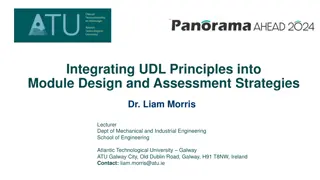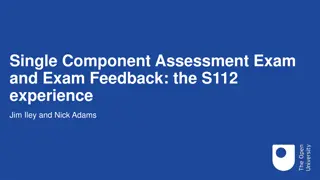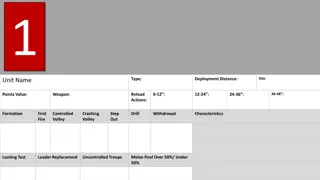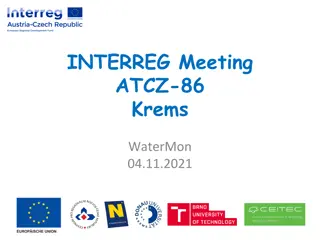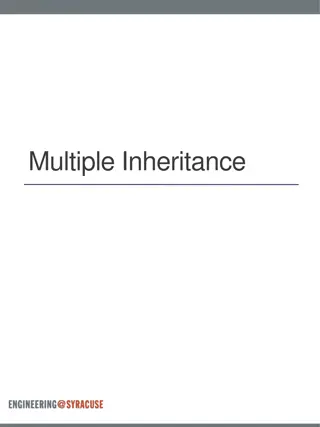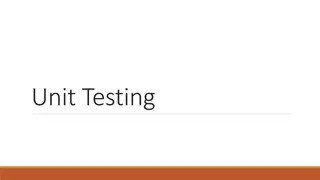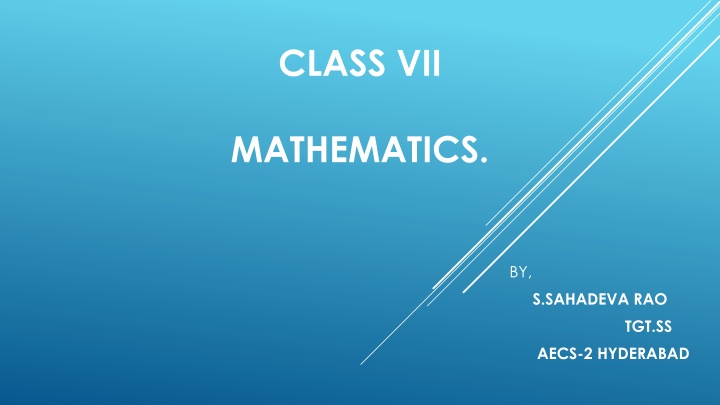
Properties of Integers in Mathematics
Explore closure, commutative, and associative properties of integers, natural numbers, and whole numbers under addition, subtraction, multiplication, and division. Learn how these properties differ for each type of number and operation.
Download Presentation

Please find below an Image/Link to download the presentation.
The content on the website is provided AS IS for your information and personal use only. It may not be sold, licensed, or shared on other websites without obtaining consent from the author. If you encounter any issues during the download, it is possible that the publisher has removed the file from their server.
You are allowed to download the files provided on this website for personal or commercial use, subject to the condition that they are used lawfully. All files are the property of their respective owners.
The content on the website is provided AS IS for your information and personal use only. It may not be sold, licensed, or shared on other websites without obtaining consent from the author.
E N D
Presentation Transcript
CLASS VII MATHEMATICS. BY, S.SAHADEVA RAO TGT.SS AECS-2 HYDERABAD
CHAPTER I INTEGERS MODULE 6/8
In the previous module we have discussed about Closure property, commutative property and associative property under addition , subtraction and multiplication
Recall the following 1. Natural numbers (N) , and Whole numbers(W) are closed under addition, and multiplication and they are not closed under subtraction But integers are closed under addition, subtraction and multiplication. 2. Natural numbers(N) , Whole numbers(W) and Integers (I) are commutative under addition and Multiplication and not commutative under subtraction 3. Natural numbers (N) ,Whole numbers ( W) and Integers (I) are associative under addition and multiplication and not associative under subtraction.
In this Module 6/8 we will discuss about the properties under division
1. For Integers (I) a) Closure property under division For any two Integers a and b , a b is not always an Integers Ex. For any two Integers 20 and - 4 20 (-4) = -20/4 = -5 , is an integer, but (-4) 20 = -4/20 = -1/5, is not an Integers. So Integers are not closed under division * Similarly the Natural Numbers (N) and Whole numbers (W) are also not closed under division.
b) Commutative property under division. For any two Integers a and b , a b is not always equal to b a Ex for any two Integers 20 and -4 20 (-4) = 20/4 = -5 (-4) 20 = -1/5 , so -5 -1/5 20 4 4 20 So Integers are not commutative under division. Similarly the Natural numbers(N) and Whole numbers(W) are also not commutative under division.
c) Associative property under division. For any three Integers a , b and c a ( b c) is not always equal to (a b ) c Ex. For any three Integers 20 , 10 and 2 20 (10 2) = 20 5 = 4 ( 20 10 ) 2 = 2 2 = 1 4 1 20 (10 2) ( 20 10 ) 2 So Integers are not associative under division Similarly the Natural numbers(N) and whole numbers (W) are also not associative under division.
So finally we conclude * Natural Numbers(N) , Whole Numbers (W) and integers (I) are not closed under Division. * Natural Numbers(N) , Whole Numbers (W) and integers (I) are not Commutative under Division. * Natural Numbers(N) , Whole Numbers (W) and integers (I) are not Associative under Division.
DIVISION OF INTEGERS 1. When we divide a positive integers by a positive integers , then the quotient is Positive. ( +) (+) = + Ex. For 125 and 25 125 25 = + 5 2. When we divide a Positive integer by a negative integer (or) a negative integer by a positive integer (+) ( - ) = - ( - ) (+) = - Ex. 35 (-7) = -5 ( -85 ) (5) = -17 3. When we divide a negative integer by a negative integer , then the quotient is positive ( - ) ( - ) = + Ex. (-52) (-4) = +13
4. Division by 1 When we divide any integer by 1 we get the same integer Ex. 36 1 = 36 (-36) 1 = -36 0 1 = 0 5. Division involve zero (0) a) When we divide zero (0) by any in number we get the zero 0 28 = 0 0 (-28) = 0 b ) zero division is not defined we can not divide any number by zero. It is not defined. Ex. 36 0 = not defined (-45) 0 = not defined. And 0 0 = not defined
ASSIGNMENT. 1. Fill in the blanks I) 201 1 =__________ ii) (-67) 1 = __________ iii) 32 (-1) = __________ iv) (-33) (-1) = __________ v) 0 99 = __________ vi) 0 (-99) = __________ vi) (-34) 0 = __________ vii) 34 0 = __________ viii) 0 0 = __________
2. find the value of i) 65 5 ii) (-305 ) 5 iii) 633 (-3) iv) (-5555) (-11)



